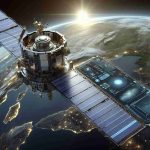Russia’s military presence in Syria has been a significant geopolitical issue for years, but a new development is now drawing attention: the introduction of cutting-edge technologies at these bases. In recent months, reports have indicated that Russia is deploying advanced drone technologies and integrating artificial intelligence into its Syrian operations. This shift not only enhances Moscow’s strategic capabilities in the region but also raises questions about the future trajectory of the conflict.
Drone Advancements: The use of drones is not new, but Russia’s latest models reportedly include enhanced targeting systems and longer flight ranges. These advancements allow for more efficient surveillance and better-coordinated strikes, potentially altering the balance of power in contested areas. Additionally, these drones are equipped with AI-driven analytical tools that can process and relay battlefield data in real time.
AI and Automation: Besides drones, the incorporation of AI at Russian bases encompasses logistics, cybersecurity, and decision-making processes. This increased reliance on technology reduces human error and may streamline military operations. However, it also opens new fronts in the ethical debate surrounding autonomous warfare.
The implications of these technological upgrades are profound. They could serve as a force multiplier for Russian operations, complicating efforts towards peace and posing new challenges for international diplomacy. As these technologies evolve, their use in Syria may set precedents for future conflicts, showcasing both the potential benefits and the risks associated with modern warfare innovations.
How Russia’s Technological Edge in Syria is Shaping Modern Warfare
The Rise of Advanced Military Technologies
Russia’s significant investment in advanced military technologies at its Syrian bases marks a pivotal moment in contemporary warfare. By deploying cutting-edge drone technologies and integrating artificial intelligence, Russia is not only enhancing its strategic capabilities but also redefining the battlefield dynamics in Syria. This development raises crucial questions about the future of military conflicts and international diplomacy.
Game-Changing Drone Features
The latest Russian drones boast impressive technological advancements. Featuring enhanced targeting systems and extended flight ranges, these drones are set to revolutionize military surveillance and strike coordination. Equipped with AI-driven analytical tools, these drones can process and relay critical battlefield data in real time, providing a decisive edge in contested regions.
AI Integration: Pros and Cons
The incorporation of artificial intelligence at Russian military bases extends beyond drones to include logistics, cybersecurity, and decision-making processes. This reliance on AI aims to minimize human error and streamline operations, potentially increasing military efficiency. However, it also raises ethical concerns about the role of autonomous technology in warfare.
# Pros
– Improved Operational Efficiency: AI can automate logistical tasks, freeing human resources for more tactical roles.
– Enhanced Cybersecurity: AI technologies can better detect and respond to cyber threats, safeguarding critical military data.
– Informed Decision-Making: AI can provide commanders with data-driven insights, improving strategic planning.
# Cons
– Ethical Concerns: The use of autonomous weapons systems is controversial and could lead to unintended consequences on the battlefield.
– Technological Dependence: Over-reliance on AI may reduce human control and intuition in critical situations.
Implications for International Diplomacy
The technological edge gained by Russia in Syria poses new challenges for peace efforts and international diplomacy. As these advancements become more widespread, they could serve as a model for future conflicts, emphasizing both the benefits and risks associated with modern military innovations.
Future Predictions and Trends
Looking ahead, the role of advanced technologies in military operations is expected to grow. Nations worldwide may seek to develop similar capabilities to match Russia’s advancements in AI and drone technology, potentially leading to a new era of technological arms races. This trend underscores the need for international frameworks to address the ethical implications of AI in warfare.
For more information about Russia’s geopolitical strategies, visit Sputnik News.









